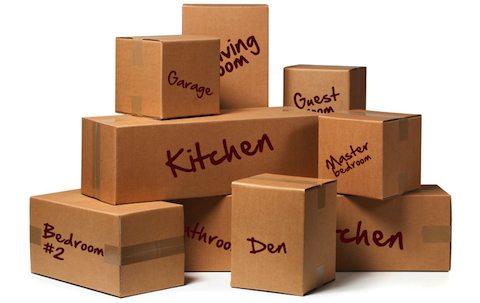 The key to a successful stay in a rental home or apartment is knowing exactly what you are getting into. That means the tenant needs to spend some time with the rental agreement, with the landlord, and with other people that have experienced renting in the past. If it is a complicated lease or a commercial lease, it is probably best to let a legal expert take a look at it. It is easy to let the excitement of getting out on your own overshadow the responsibilities of being a tenant for the first time. Here are some tips to consider.
The key to a successful stay in a rental home or apartment is knowing exactly what you are getting into. That means the tenant needs to spend some time with the rental agreement, with the landlord, and with other people that have experienced renting in the past. If it is a complicated lease or a commercial lease, it is probably best to let a legal expert take a look at it. It is easy to let the excitement of getting out on your own overshadow the responsibilities of being a tenant for the first time. Here are some tips to consider.
1. Don’t skip over the details. Many first-time renters look at the monthly payment and lease terms then gloss over the rest of their lease agreement. As they say, the ‘devil is in the details’. Even though it might say lease ‘agreement’ at the top of the page, it is definitely a binding legal ‘contract’. Pay special attention to the late fee charges and security deposit disposition. Regarding the late fee, how much is it, what is the grace period, and can it grow indefinitely? What happens if you go to pay rent on the last day of the grace period and the office is closed for a holiday? For the security deposit, how quickly will you get it back when you leave? What do you have to do in order to get all of your deposit back? What are the pet policies and the policy for having a friend spend the night? Where should they park?
2. Repair and Maintenance questions often cause conflicts between tenants and landlords. When can the landlord or maintenance person walk in to your apartment to work on something? What are your responsibilities to maintain your air conditioning filters or light bulbs? How quickly does your landlord need to respond to your repair request? These are questions you need to know about.
3. What are your rights? Maybe you didn’t know that your next door neighbor is in a rock band that practices at night. As a tenant, you should have the right to ‘quiet and peaceful enjoyment’ of your rental property. Find out the procedure to enforce that right. The landlord might decide to remodel the rental next door, so take a look around and make sure that there is nothing that would disturb your peace. You also have the right to not be asked any questions that might violate the fair housing laws. These questions involve race, religion, sex, country of origin, disability and familial status. You should do an Internet search and be familiar with that before talking to your landlord.
Lastly, go into this binding agreement with your eyes wide open and ask lots of questions. If your landlord avoids answering, you should be concerned. However, if the agreement is thoroughly discussed and you are aware of everything you are signing, you can expect a good relationship with your landlord. After all, your landlord wants a happy tenant that might stay a long time, provide good references and reviews, pay the rent promptly, and take care of the property. Know exactly what you are getting into and your first-time renting experience can be a great one!


 Of course, the topic of financials is also highly important to consider. Much like car insurance, you can receive a discount on renter’s insurance if you pay it all in a lump sum for the entire year. The biggest financial plus about renter’s insurance is that it’ll cover your belongings if something happens to them. You won’t need to dish out a ton of money to replace whatever was damaged or stolen.
Of course, the topic of financials is also highly important to consider. Much like car insurance, you can receive a discount on renter’s insurance if you pay it all in a lump sum for the entire year. The biggest financial plus about renter’s insurance is that it’ll cover your belongings if something happens to them. You won’t need to dish out a ton of money to replace whatever was damaged or stolen.